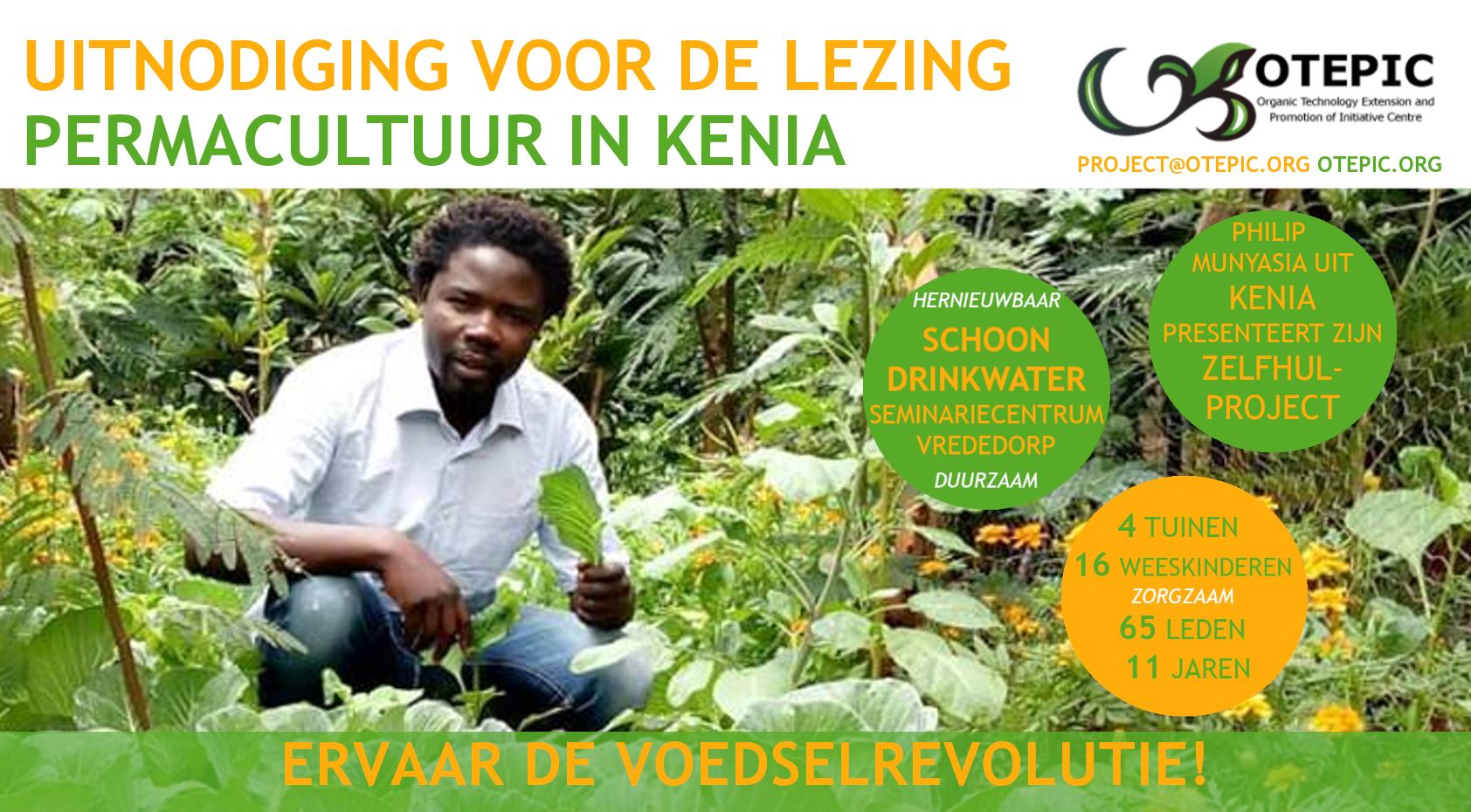One of the first events co-hosted by Stichting Boerengroep in October 2019 was the “Permaculture in Kenia” lecture by Philip Odhiambo Munyasia. Philip comes from Mitume, a slum close to the city of Kitale in Western-Kenya and arrived in Wageningen as part of his tour throughout Europe to present the “OTEPIC” project.
Kitale has been a center of intensive and globalized agricultural production for many years, inflicting a high impact on the inhabitants in terms of nature and soil depletion, desertification, deforestation and social injustice. Growing up in a slum meant being confronted with difficult circumstances and having experienced poverty, hunger, abandonment, violence and abuse sometimes already in early childhood. For these reasons, Philip already formulated his vision of the real food revolution as a teenager: sustainable self-nourishment, knowledge transfer and living in peace and harmony with nature. After studying in the USA and Portugal, he returned to Kenya and found like-minded people. In that way, the “OTEPIC” project, which stands for Organic Technology Extension and Promotion of Initiative Centre, was founded as a “Community Based Organization” eleven years ago in 2008 consisting of five Kenyan board-members.
From the start, Philip mobilized young people and women’s groups from Kitale’s slums, giving them perspective and hope despite the difficult circumstances of today. The aim was to grow their own food, plant trees for reforestation, ensure sustainable water supply, use renewable energies, develop community building and to find peaceful solutions for (tribal) conflicts. OTEPIC offers free and accessible training and workshops to all the communities including follow-up training to see how farmers are implementing these technologies. Before any group or community is selected for any training, a participatory rural appraisal (PRA) exercise is carried out. This approach enables the community to present, share and analyze their knowledge and conditions of life, in order to update and keep in tune with what they really want. Today, the project cultivates four gardens on an area of 11 hectares. There is an orphanage, a dance group and many helpers and supporters. Among other things, two solar driven ground water pumping systems providing free access to clean drinking water for 3,000 people. For the further development and transfer of know-how, an ecological and self-sufficient peace culture village with seminar centre is to be created.
Philip’s lecture touched upon the ecological, socio-economic, political and cultural aspects that shape the difficult reality Kenyan farmers and consumers are faced with on a daily basis. Then again, Philip showed the possibilities of tackling and mitigating issues following a bottom-up approach, proving that there is every reason to be hopeful about the future of his region.
If you would like to know more about the OTEPIC project or want to contribute to the project by donating financial support, you can visit the website: http://www.otepic.org
Each Euro is worth one stone to build the seminar center and peace villages, so you know exactly how your donation is being spend.

